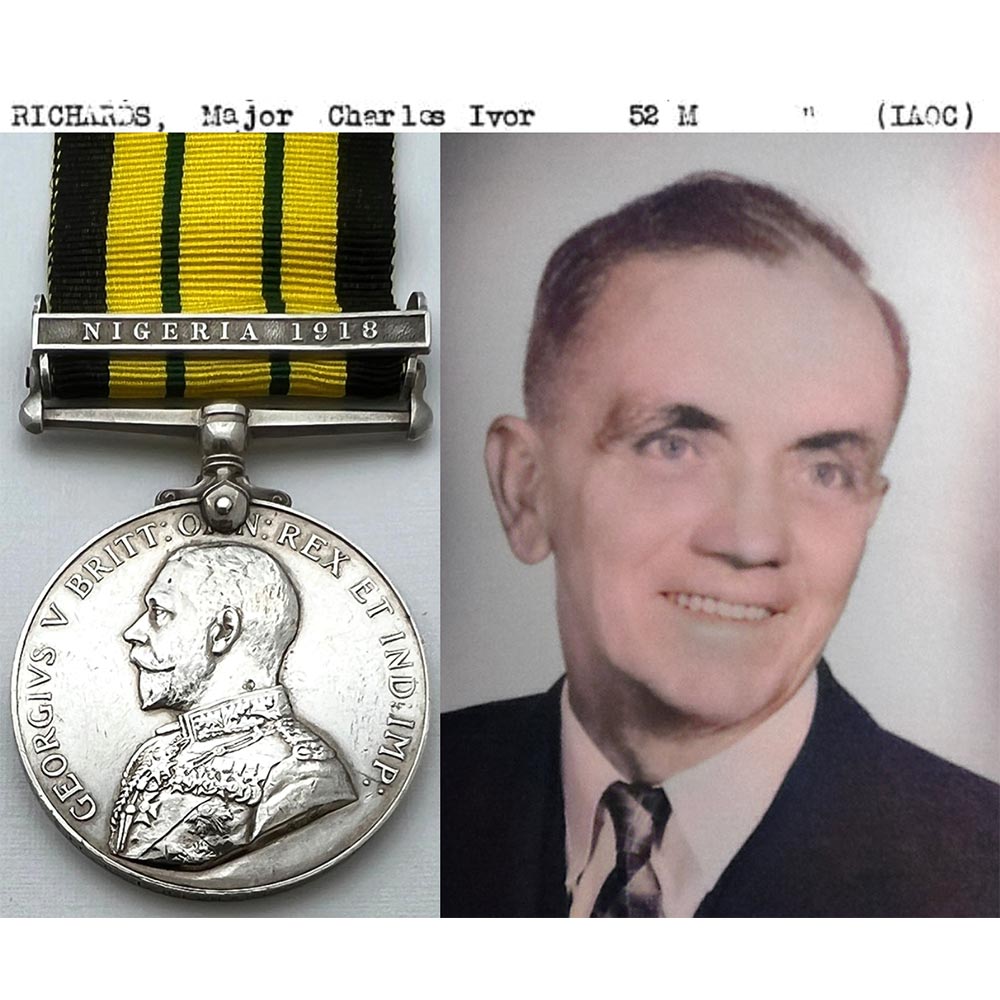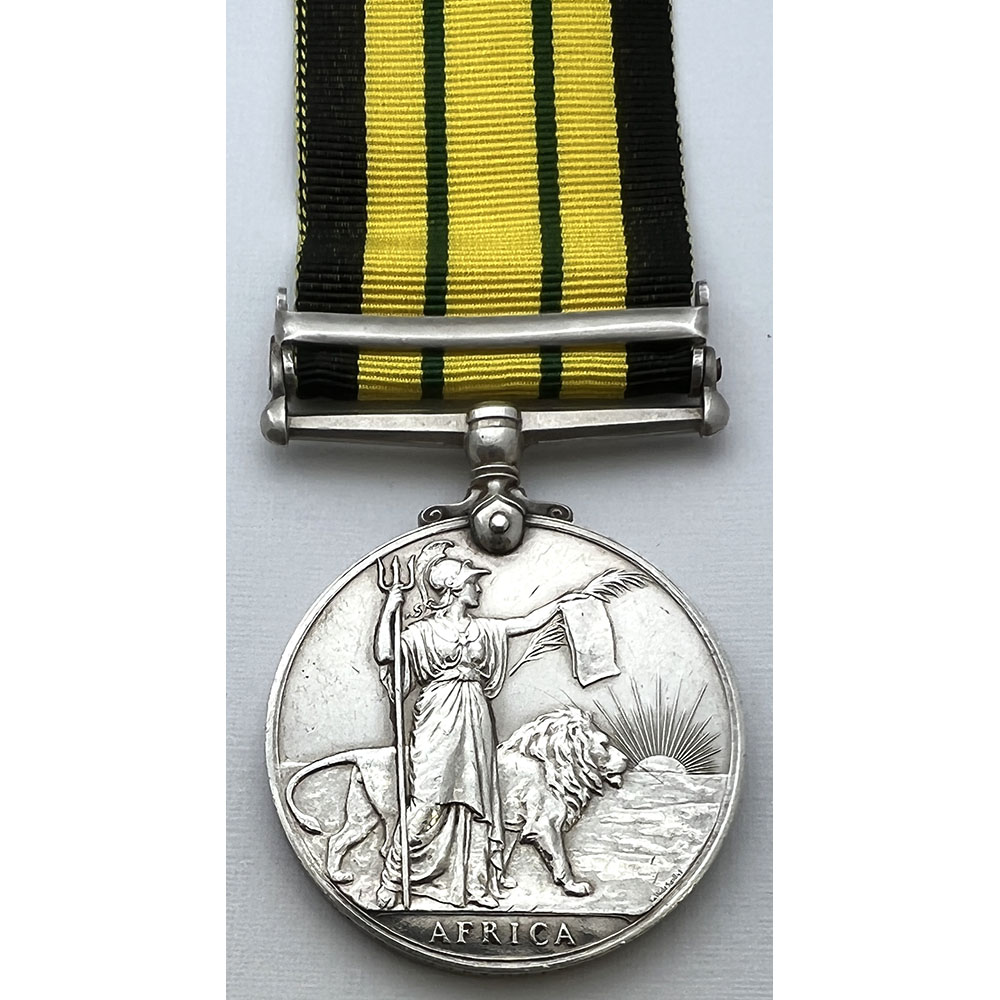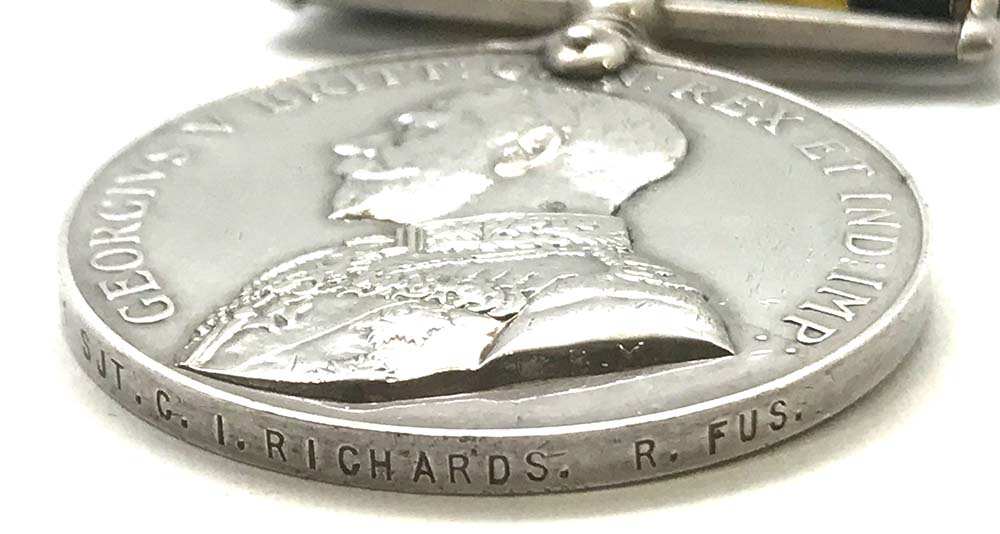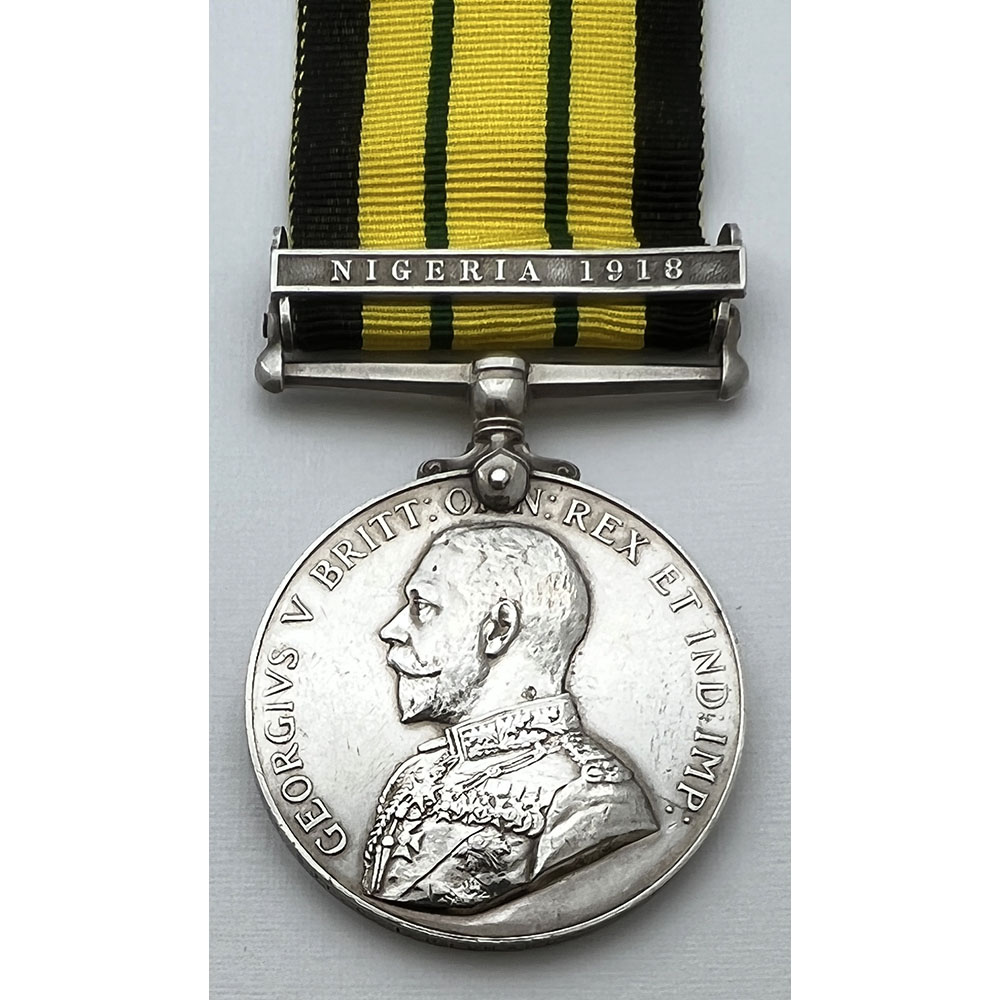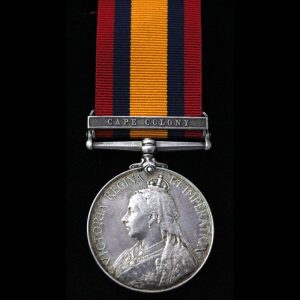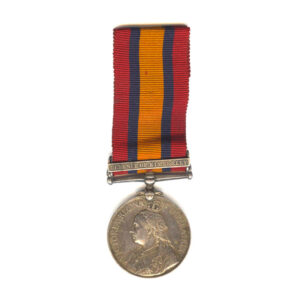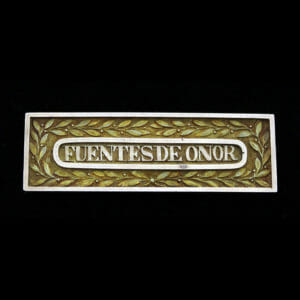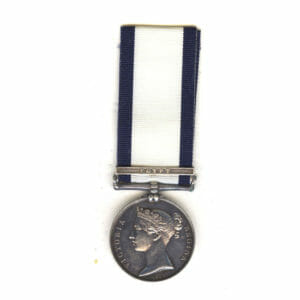Description
Africa General Service Medal, GV, Bar Nigeria 1918, 351471 Sergeant Charles Ivor Richards, Royal Fusiliers, attached West African Frontier Force for the Egba Expedition or Adubi War.
Officially impressed: “351471 Sjt C.I. Richards. R. Fus.”
For service as an attached European NCO with the 2nd Battalion Nigeria Regiment during the Adubi War, known as the “Egba Expedition”.
Confirmed on the medal roll one of about 5 men present from the Royal Fusiliers and noted on his WW1 Medal Index Card.
Only 220 medals and 6 extra clasps earned for the 2nd Nigeria Regiment. About 52 men on the roll were European Officers or Sergeants attached from their parent regiments for the campaign.
Major Charles Ivor Richards, was born on 3rd October 1895, in Pallavaram, Tamil Nadu, India, where his father who was originally from Swansea was working.
The son of Welshman John Joseph Richards and Margaret (Millard), who was herself born in Bangalore.
Sergeant Charles Ivor Richards had first entered the War in France on 27th October 1915 and served as 3946 Lance Sergeant With the 7th London Regiment.
The 7th (City of London) Battalion London Regiment, formed the 1/7th battalion for active service in France.
They went on to see significant war service in France, fighting at Festubert and the Battle of Loos and Vimy in the Winter.
The next year they were engaged on the Somme in July 1916. Later fighting at Butte de Warlencourt, Ypres and Bourlon Wood.
He saw the following overseas service:
7th London Regiment, Staff Sergeant, Served in France from 28th October 1915 to 21st November 1915
Then again in France from 18th April 1916 until 5th November 1916.
Remaining in France he was transferred as a Staff Sergeant to the 1st Canadian Training Company serving with them until 31st January 1917.
After some time at home, he was “Attached to the W.A.F.F.” seeing service in the 5(b) theatre from 24th April 1918 until 11th November 1918.
He continued with the Army after the war for many years, as a Staff Sergeant and Temporary Lieutenant.
After the war, he was Commissioned into the Indian Army, becoming a Temporary Lieutenant in the Indian Army Ordnance Corps on 8th July 1925.
Whilst in India, he married Lilian Mabel Wheeler on 2rd September 1928 in Kidderpore, Bengal.
When he was needed again in World War 2, he was once again commissioned for service, with the Somerset Light Infantry and Indian Army
London Gazette 27th February 1942.
“Warrant Officers to be Temporary Lieutenants (Assistant Commissaries) 1st November 1941, Charles Ivor Richards.”
After the war he travelled to Freemantle, Australia on the S.S. Sturias during January 1948, listed on the passenger list as “Major Charles Ivor Richards”, 52 years old, of the British Military, Indian Army Ordnance Corps.
He later remarried in 1956, when he was noted as a Major in the Indian Army (Retired)
He died in July 1966, at the Age of 70, in Kingston upon Thames, London.
The Egba “Expedition” is not very well known in England but famous in Nigeria, being the first Anti White Supremacy action of the Nigerians against the British, the only European Casualty killed in the war being the man who was beheaded that started off the war in Egbaland.
Known locally as the “Ogun Adubi”, in late 1918 the Nigerians of Egbaland rose up against the colonial taxation, in response on 7th June 1918, the British arrested 70 Egba chiefs and issued them an ultimatum to pay up the taxes and lay down their arms.
This escalated, on 11th June, a party of soldiers, recently returned from East Africa were brought into help police the are and keep the peace.
On 13th June, Egba Rebels then pulled up railways lines at Agbesi and derailed a train.
Other rebels demolished the train station at Wasinmi and murdered the British Agent, and the Oba Osile, the African Leader of the North Eastern Egba District.
The hostilities between the 30,000 Rebels and Colonial troops continued for 3 weeks at Otite, Tappona, Mokoloki and Lalako, but by 10th July, the rebellion had been officially put down, the leaders being either killed or arrested.
In the aftermath there were 1 or 2 casualties for the British Empire and British Nigeria, but 600 killed for the rebels and 70 of their Egba chiefs taken under arrest.
The incident would lead to the abolition of Abeokutan independence in 1918 and the introduction of forced labour into the region.
It is noted as the beginning of the Nigeria Nationalist Movement that would later aid them with independence.
